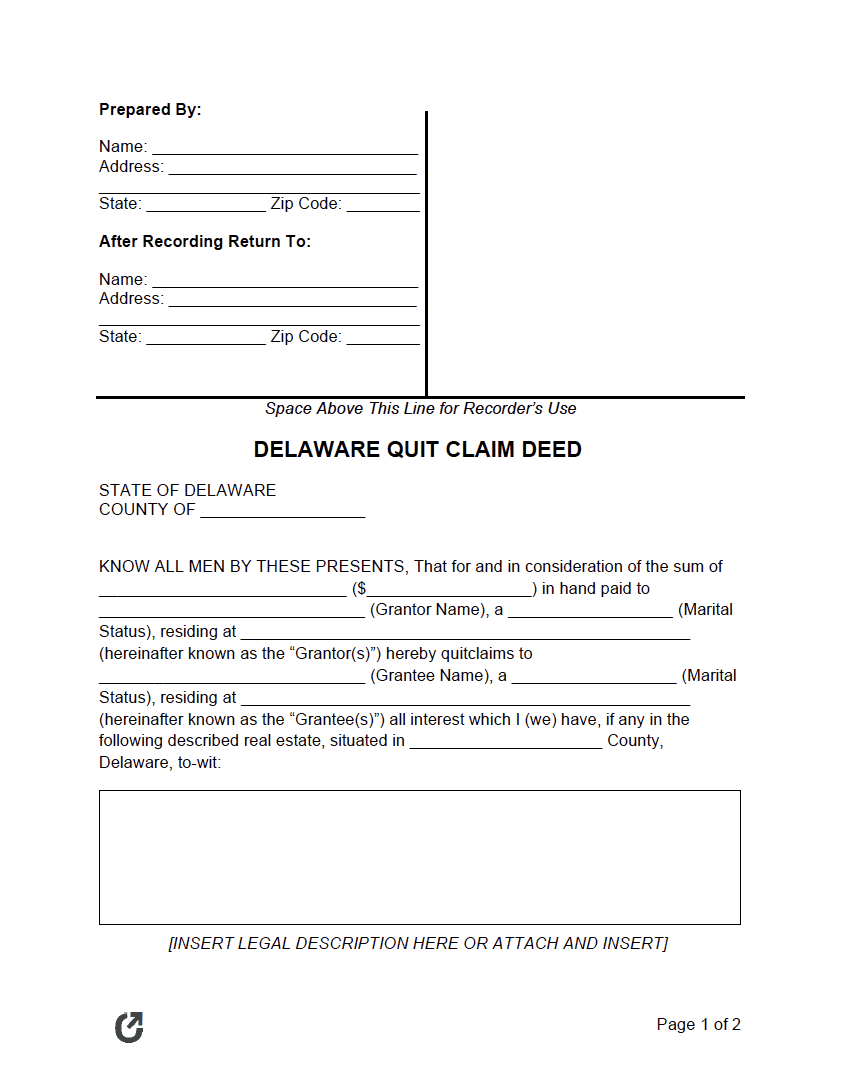Delaware Quit Claim Deed Form
A Delaware quit claim deed is a legal form used to give up (transfer) one’s interest in real property. Out of all the property deeds used in Delaware, it offers the simplest and fastest means of conveyance. While exceptionally easy to complete, it doesn’t include any warrants of title for the grantee. This means there are no promises that the deed doesn’t come with past liens, mortgages, or other title clouds. If the deed is used among family or friends, this is rarely an issue. However, if the parties are unaffiliated with one another and the property is being purchased (not gifted), the purchaser (grantee) could run into problems with the deed later on.
To protect against any issues, the grantee can have a title search conducted prior to paying. If nothing is uncovered during the search, the grantee is most likely in the clear. However, if an issue does appear later on, the grantee will have no financial recourse due to only receiving a quit claim deed.
Laws
|
